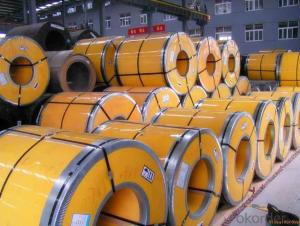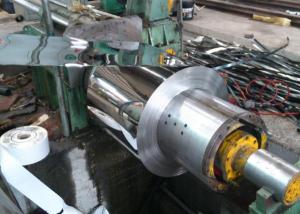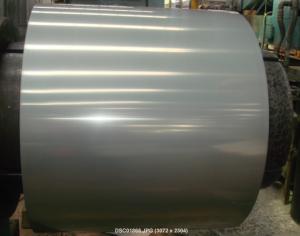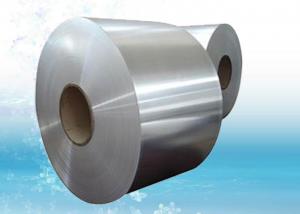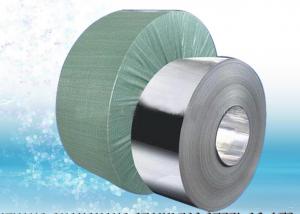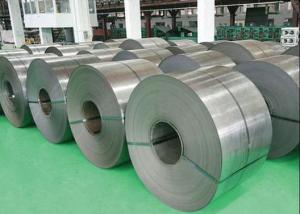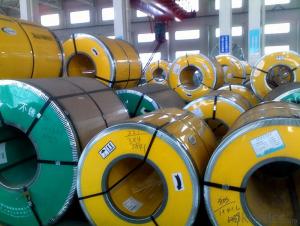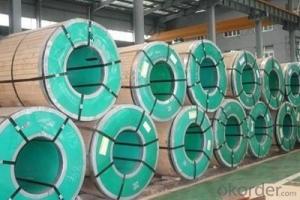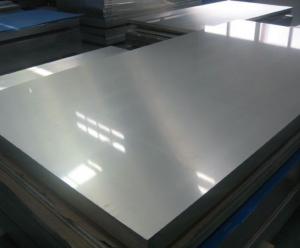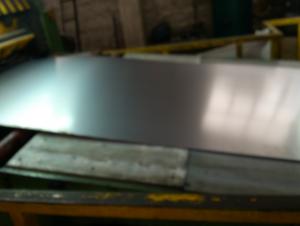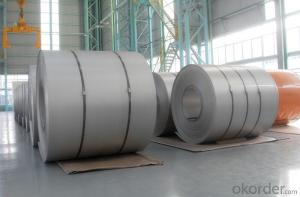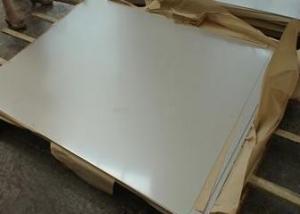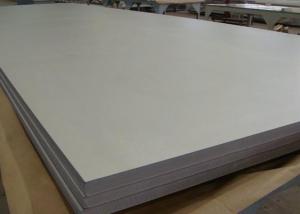304 SERIOUS COLD ROLLED STAINLESS STEEL COILS/SHEETS
- Loading Port:
- Guangzhou
- Payment Terms:
- TT OR LC
- Min Order Qty:
- 100 m.t.
- Supply Capability:
- 20000 m.t./month
OKorder Service Pledge
Quality Product, Order Online Tracking, Timely Delivery
OKorder Financial Service
Credit Rating, Credit Services, Credit Purchasing
You Might Also Like
Quick Details
| Grade: | 300 Series,304 | Standard: | JIS,AISI,ASTM,GB,DIN,EN | Length: | 1000-6000mm |
| Thickness: | 0.3-100mm | Width: | 1000-2000mm | Place of Origin: | foshan |
| Brand Name: | Model Number: | 304 | Type: | Coil | |
| Application: | construction, building, shipbuilding etc | Certification: | SGS | Surface: | 2B,BA,No.1,No.4,HK,Mirror finish,brush ,hairline |
| Producitivity: | 800Tons/Month | Loading Port: | guangzhou | Main market: | india,Japan,Saudi Arabia,Singapore,Indonesia etc |
| Supply status: | cold rolled and hot rolled |
Packaging & Delivery
| Packaging Detail: | standard export packing stainless steel coil grade 304 |
| Delivery Detail: | 7-10 workdays |
Specifications
1,stainless steel coil grade 304
2,Thickness:0.3-100mm
3Width:50-3000mm
4,Length:1000-6000
5,Deliver time:5 days
- Q:Are stainless steel strips resistant to sulfuric acid?
- Yes, stainless steel strips are generally resistant to sulfuric acid. Stainless steel is known for its corrosion resistance properties, and it has a high resistance to a wide range of chemicals, including sulfuric acid. However, the level of resistance may vary depending on the grade and composition of the stainless steel. In highly concentrated and hot sulfuric acid solutions, some types of stainless steel may experience limited corrosion. It is always recommended to consult with a materials specialist or refer to specific corrosion resistance charts to determine the suitability of stainless steel strips for a specific sulfuric acid application.
- Q:Can stainless steel strips be used in the food processing industry?
- Indeed, the food processing industry is able to utilize stainless steel strips. This particular material, known for its exceptional durability and resistance to corrosion, finds wide application in the realm of food processing. Stainless steel possesses a smooth surface that hinders bacteria accumulation, is easily cleaned, and can withstand both extreme temperatures and exposure to chemicals. In the food processing industry, stainless steel strips serve numerous functions, including the construction of conveyor belts, equipment components, food preparation surfaces, and storage containers. Furthermore, they adhere to the industry's rigorous hygiene and safety standards, making them a favored option due to their reliability and long-lasting nature.
- Q:Can stainless steel strips be used in automotive exhaust systems?
- Yes, stainless steel strips can be used in automotive exhaust systems. Stainless steel is commonly used in exhaust systems due to its high resistance to corrosion and heat, making it a durable and reliable material for withstanding the harsh conditions of exhaust gases and moisture.
- Q:Are 111 stainless steel strips suitable for chemical storage tanks?
- 111 stainless steel strips are unsuitable for chemical storage tanks. They lack the necessary corrosion resistance and durability required to withstand the aggressive chemical environments commonly encountered in storage tanks. Thus, it is crucial to utilize stainless steel grades specifically engineered for chemical storage purposes, such as 304 or 316 stainless steel. These grades exhibit superior resistance to corrosion and chemical attacks.
- Q:Are stainless steel strips suitable for dairy tanks?
- Yes, stainless steel strips are suitable for dairy tanks. Stainless steel is a popular choice for dairy tanks due to its excellent corrosion resistance, durability, and hygienic properties. It is resistant to rust, staining, and chemical reactions, making it ideal for storing milk and other dairy products. Stainless steel also has a smooth surface, which makes it easy to clean and maintain cleanliness standards required in the dairy industry. Additionally, stainless steel has good thermal conductivity, allowing for efficient heat transfer during processes such as pasteurization. Overall, stainless steel strips are a reliable and suitable material for dairy tanks.
- Q:Can stainless steel strips be used in architectural façade systems?
- Yes, stainless steel strips can be used in architectural façade systems. Stainless steel is a popular choice for architectural applications due to its durability, corrosion resistance, and aesthetic appeal. It can be used as cladding or decorative elements in façade systems, providing a sleek and modern appearance to buildings.
- Q:Are stainless steel strips suitable for jewelry making?
- Indeed, stainless steel strips prove to be an ideal option for crafting jewelry. This material, known for its durability and versatility, exhibits remarkable resistance against tarnishing, rust, and corrosion, thus ensuring the longevity of the jewelry. Moreover, stainless steel possesses hypoallergenic properties, rendering it suitable for individuals with sensitive skin or allergies to metals. The flexibility of stainless steel strips facilitates their manipulation into diverse jewelry designs, encompassing rings, bracelets, necklaces, and earrings. Furthermore, stainless steel frequently serves as a cost-effective substitute for pricier metals such as silver or gold, enabling those with a desire for high-quality jewelry to acquire it at a more affordable price.
- Q:How do you store stainless steel strips?
- To ensure the proper storage of stainless steel strips and maintain their quality, it is crucial to take specific precautions. Here are some recommended steps to consider: 1. Thoroughly clean and dry the stainless steel strips before storing them to eliminate any dirt, dust, or moisture. This step will prevent corrosion or staining during the storage period. 2. Protect the strips from moisture by storing them in a dry and well-ventilated area. Avoid placing them near water sources or in high humidity environments because stainless steel is prone to rust. 3. Prevent potential galvanic corrosion by avoiding direct contact between stainless steel strips and other metals, especially those that are less noble or susceptible to corrosion. If stacking the strips, use separators or protective layers made of plastic or non-reactive materials to avoid direct metal-to-metal contact. 4. Consider using appropriate packaging materials such as plastic wrap, paper, or specially designed corrosion-resistant packaging to provide additional protection. This will help prevent scratches, corrosion, or other damages during storage or transportation. 5. Properly organize and label the stainless steel strips to facilitate easy identification and retrieval when needed. This will minimize unnecessary handling and potential damage caused by searching or mishandling. 6. Whenever possible, store the strips in a temperature-controlled environment to extend their lifespan. Extreme temperature variations can cause expansion and contraction, leading to stress and potential deformation. By adhering to these guidelines, you can ensure that your stainless steel strips remain in excellent condition, ready for use whenever required.
- Q:Are stainless steel strips resistant to impact and vibration?
- Yes, stainless steel strips are generally resistant to impact and vibration. Stainless steel is known for its strength and durability, making it highly resistant to impacts and vibrations. It is commonly used in various industries where these properties are important, such as construction, automotive, and aerospace. Stainless steel strips are often used in applications where they need to withstand external forces, such as in the manufacturing of machinery, equipment, and structures. Additionally, stainless steel has excellent fatigue resistance, meaning it can withstand repeated loading and unloading without any significant loss in performance. Overall, stainless steel strips are a reliable choice when it comes to impact and vibration resistance.
- Q:How do stainless steel strips perform in high-temperature steam?
- Stainless steel strips are known for their excellent performance in high-temperature steam environments. Due to their unique composition, stainless steel strips possess high corrosion resistance, even when exposed to aggressive steam conditions. The chromium content in stainless steel forms a protective layer of chromium oxide on the surface of the strips, which acts as a barrier against corrosion and prevents the material from reacting with the steam. This protective layer is stable even at high temperatures, ensuring the stainless steel strips maintain their integrity and performance in steam environments. Additionally, stainless steel strips have high strength and toughness, allowing them to withstand the mechanical stresses and pressures associated with high-temperature steam applications. Overall, stainless steel strips are a reliable and durable choice for use in high-temperature steam environments, providing long-lasting performance and corrosion resistance.
1. Manufacturer Overview |
|
|---|---|
| Location | |
| Year Established | |
| Annual Output Value | |
| Main Markets | |
| Company Certifications | |
2. Manufacturer Certificates |
|
|---|---|
| a) Certification Name | |
| Range | |
| Reference | |
| Validity Period | |
3. Manufacturer Capability |
|
|---|---|
| a)Trade Capacity | |
| Nearest Port | |
| Export Percentage | |
| No.of Employees in Trade Department | |
| Language Spoken: | |
| b)Factory Information | |
| Factory Size: | |
| No. of Production Lines | |
| Contract Manufacturing | |
| Product Price Range | |
Send your message to us
304 SERIOUS COLD ROLLED STAINLESS STEEL COILS/SHEETS
- Loading Port:
- Guangzhou
- Payment Terms:
- TT OR LC
- Min Order Qty:
- 100 m.t.
- Supply Capability:
- 20000 m.t./month
OKorder Service Pledge
Quality Product, Order Online Tracking, Timely Delivery
OKorder Financial Service
Credit Rating, Credit Services, Credit Purchasing
Similar products
New products
Hot products
Hot Searches
Related keywords
